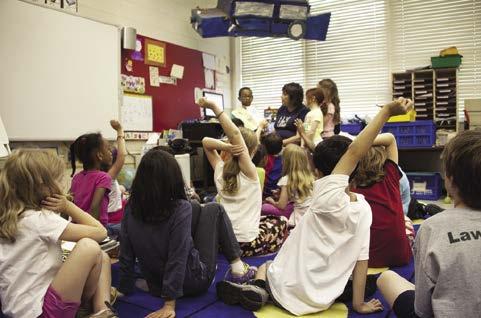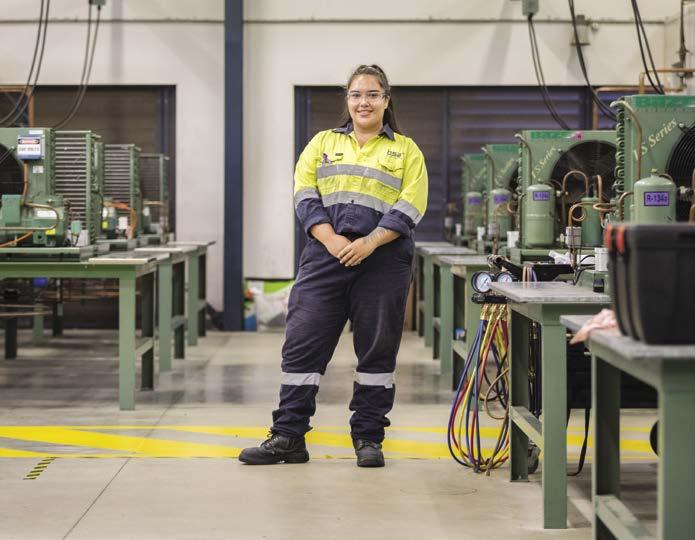Around the Nation 1
2
4
1 QUEENSLAND WON’T RUSH LICENSING REFORM The Queensland government has indicated it will be working with the federal government to resolve issues around automatic mutual recognition before adopting the reforms, due to take effect on July 1 around Australia. “The Queensland government is supportive of improving occupational mobility to support economic recovery, but not at any cost,” says the government. “It is committed to retaining Queensland’s high standards of regulatory protections and safeguards. A critical issue for Queensland is ensuring appropriate clarity and flexibility to be able to effectively exempt specific occupations to address and manage the substantial concerns raised by key stakeholders and regulators. In this regard, the Queensland government is continuing to engage with the Commonwealth on these matters. “As such, any adoption of the reform in Queensland would only be at a time when Queensland is fully ready.” The automatic mutual recognition (AMR) system has been designed to allow licensed workers to operate across borders without having to apply, pay for and wait for a further licence to perform the same type of work in other states and territories. ■
4 PUT HVAC&R ON YOUR CENSUS!
“We hope to provide evidence-based guidelines on appropriate indoor conditions, design/ specifications and operations of classrooms for stakeholders including educational and health authorities and building designers,” says Associate Professor Priya Rajagopalan.
With the Australian Census coming up on August 10, AIRAH is rallying its members and those who work in the wider HVAC&R industry to classify themselves as “HVAC&R” under “industry of employment”.
“We also hope that the guidelines will inform the operation and maintenance of school classrooms, including filter-grade specifications, ventilation rates and temperature set-points in order to close the energy efficiency, thermal and IAQ performance gap.” ■
3 TIPS FOR TAX TIME The Australian Taxation Office has compiled tax‑return advice for trades. It covers the items you can claim, depending on whether you are an employee or a small business. In general, employees can claim a deduction for expenses incurred if: • You spent the money yourself and were not reimbursed • It was directly related to earning your income
2 SCHOOLS FAILING ON AIR QUALITY
If your expense was for both work and private purposes, you can only claim a deduction for the work-related portion.
A recent RMIT research project has highlighted the poor indoor air quality (IAQ) in some Victorian classrooms, and added to concerns around ventilation in Australian schools in general.
Small businesses can claim business expenses if: • The money was spent for your business (not a private expense) • You have a record to prove it.
26
|
HVAC&R Nation
|
www.airah.org.au/nation
|
“It is strange that a sector worth $38 billion, that uses more than 24 per cent of Australia’s electricity and that accounts for 11.5 per cent of our carbon dioxide emissions is basically unknown to most Australians,” says AIRAH CEO Tony Gleeson, M.AIRAH. “Unfortunately, the Australian Bureau of Statistics does not provide data specifically on the HVAC&R industry, because we are not listed as our own standard industrial classification, and that is what we would like to address. “When you fill in the industry section of your census on August 10, write that you work in HVAC&R and help us get the standing we deserve.” Go to airah.org.au/census ■
5 STAR SYSTEM FOR SPACE HEATERS The Equipment Energy Efficiency Program (E3) has published a product profile on space heaters in Australia and New Zealand and is looking for feedback to support a ratings scheme for these appliances. According to E3, space heating accounts for around a third of residential energy use in Australia and New Zealand. Energy rating labelling and supporting tools could help consumers compare different heating technologies, to make a more informed decision to best meet their heating needs.
More detailed information is available for categories such as clothing and PPE, tools and vehicles. Special measures such as temporary full expensing and instant asset write-off have also been put in place for COVID-19.
The product profile provides an overview of the space heater market and products, outlines existing government policies (domestic and international) for space heater energy efficiency, and identifies the scope to assist consumers to recognise and select more efficient space heaters. This information and the feedback E3 receives will provide a foundation for the development of a comparative energy rating labelling system.
Go to www.ato.gov.au/tradies ■
Go to www.energyrating.gov.au/consultation ■
If the expense is for a mix of business and private use, you can only claim the portion that is related to your business.
Average CO2 concentration levels in the different school classrooms ranged from 912 to 2,235ppm, and spiked as high as 5,000ppm during occupied hours. Although the Australian Standard (AS1668.2) specifies minimum floorspace and outdoor airflow
5
rate per occupant rather than maximum CO2 levels, concentrations above 1,000ppm are generally seen as unhealthy.
• You have a record to prove it.
Ventilation rates were below the recommended standards in seven out of the 10 classrooms selected for the study. Average classroom ventilation rates were far below the Australian Standard’s per-person requirement.
3
July 2021








